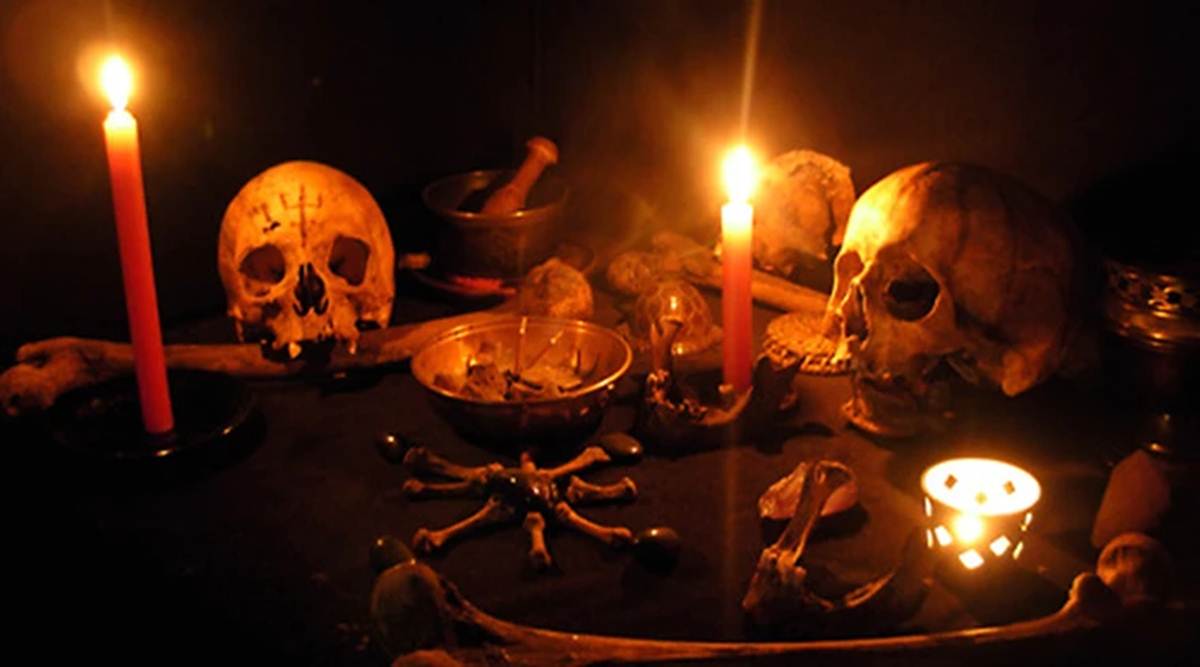The "witchcraft killing" that took place in Elanthoor of Pathanamthitta district has recast a focus on
the severity of superstitious beliefs existing in the state and the necessity for a strong fight against the
menace.
Does India’s current legislative framework talk about human sacrifice?
- While presently there exists no nationwide legislation to deal with superstitious practices, black magic, or human sacrifice in particular, certain sections of the Indian Penal Code enlist penalties applicable for such incidents.
- Section 302 (punishment for murder) takes cognisance of human sacrifice, but only after the murder is committed.
- Likewise, Section 295A (Deliberate and malicious acts, intended to outrage religious feelings of any class by insulting its religion or religious beliefs) works to discourage such practices.
- Furthermore, Article 51A (h) of the Indian Constitution makes it a fundamental duty for Indian citizens to develop the scientific temper, humanism and the spirit of inquiry and reform.
- Other provisions under the Drugs and Magic Remedies Act of 1954 also aim to tackle the debilitating impact of various superstitious activities prevalent in India.
What do the state-specific laws say?
- The state of Bihar emerged the pioneer in enacting a law to deal with superstitious practices in 1999.
- The Prevention of Witch Practices Act was amongst the first in India to address witchcraft and inhumane rituals.
- The state of Maharashtra followed in 2013 to enact the Maharashtra Prevention and Eradication of Human Sacrifice and Other Inhuman, Evil and Aghori Practices and Black Magic Act, which banned the practice of human sacrifice in the state.
- A section in the legislation specifically deals with claims made by ‘godmen’ who say they have supernatural powers.
- Additionally, the law also makes it possible to curtail activities of so-called godmen before they become too powerful to effectively address the menace of exploitation in the name of religion
- Likewise, the state of Karnataka too effected a controversial anti -superstition law in 2017 known as the Karnataka Prevention and Eradication of Inhuman Evil Practices and Black Magic Act.
- It comprehensively counters “inhumane” practices linked to religious rituals including performing any inhumane act, evil practices and black magic in search of treasure, bounty, tantric acts including physical and sexual assault, creating impression of ‘possession’ and exorcism or assaulting people under the garb of exorcism, making claims of healing power, coercing people to perform fire-walking, and so on.
- The Karnataka law also particularly lists out penalties for spreading misinformation and creating panic in the garb of ghosts or black magic.
Are there any legal precedents in this regard?
- In 2019, a district court in Chandigarh sentenced a man to life imprisonment till his natural death for brutally slitting the throat of a four-year-old girl in the name of human sacrifice.
- The court also imposed a fine of Rs 25,000 on the accused and punished him under Section 302 of the IPC.

